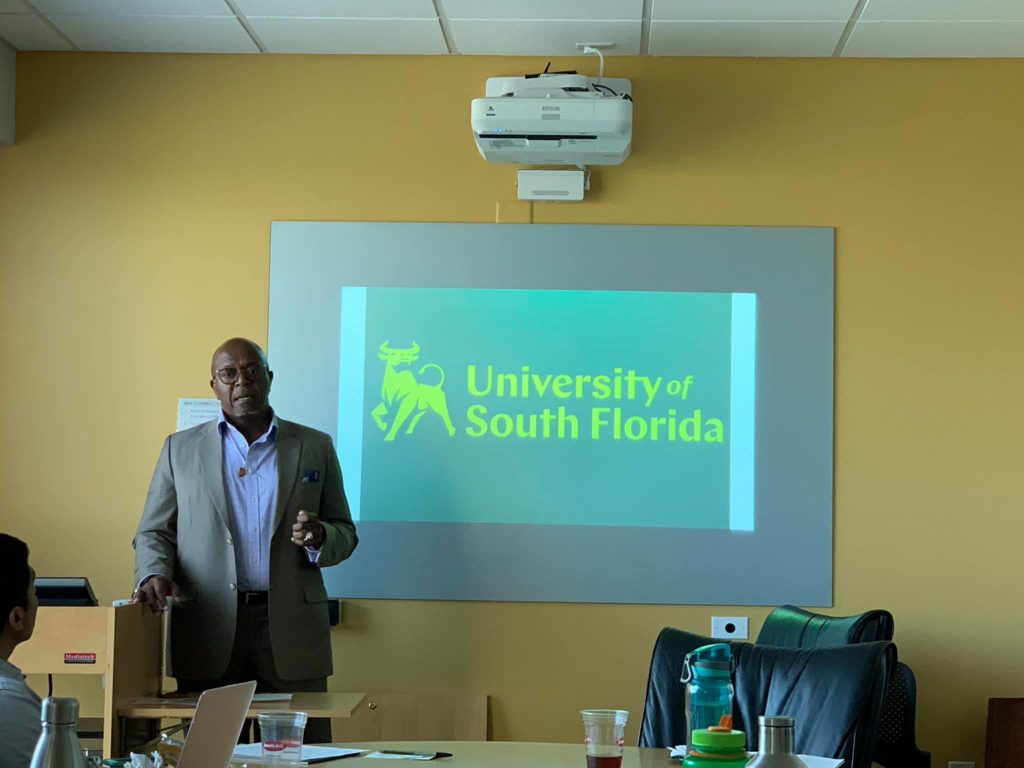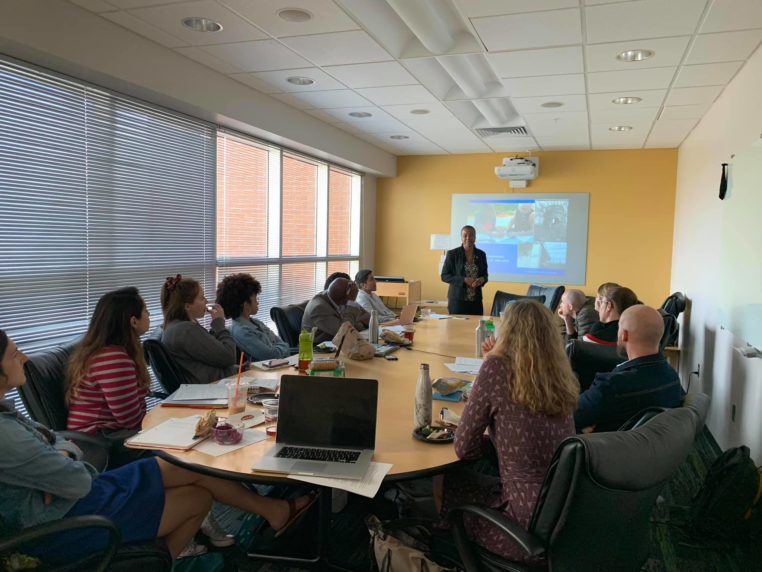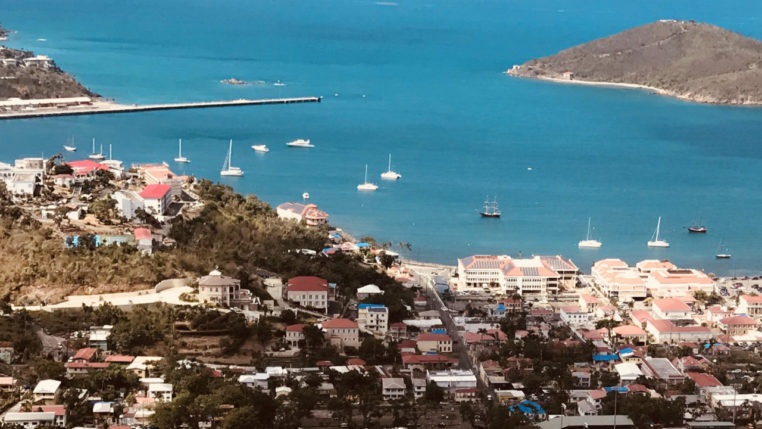People, Place, & Partnerships – The US Virgin Islands
By William (Alex) Webb
One of the key benefits to systems thinking is the ability to incorporate environmental and social context to the problems we face. To that end, the first few weeks of our NRT meetings have focused on introducing us to the particulars of the project sites. On February 4th, 2019, we were lucky enough to hear from Senator Myron Jackson, a representative from the United States Virgin Islands (USVI), and USF anthropologist Dr. Antoinette Jackson, who discussed her work with the US National Parks Service (NPS) in St. John, the smallest of the three US Virgin Islands. Dr. Jackson served as the ethnographer for the Southeast NPS region of the US. Each of their talks revolved around issues of representation and engagement with descendent (or multi-generational) families on islands experiencing high levels of both foreign immigration and local emigration.
Since 1956 the NPS has encompassed over two-thirds of St. John, receiving approximately 400,000 annual visitors. Dr. Jackson’s work focuses on understanding St John’s associated communities, their relationships with the land and the park service. In order to access these communities she attended church services, family events like barbeques and community meetings as well as talked to persons who seemed interested in her work, including friendly folks at gas stations. Through oral histories and interviews she was able to show us how things like legacies of exclusion, interpersonal family dynamics, and community relationships influence the way people relate to their natural environment and cultural history.

Similarly, Senator Myron Jackson (no relation to Dr. Jackson), who works most prominently on cultural history and preservation, discussed how the islands’ historical development as a United States territory has shaped property rights and what it means to be a native Virgin Islander. He detailed some of the challenges in drafting a USVI constitution and gaining greater representational power within the United States government.
He stressed that one of the current dilemmas facing the USVI is unemployment and that that can be linked to an education system that moved from an apprenticeship model where persons learned skills like building roofs in and for tropical climates, to one that no longer emphasized the trades. So, despite opportunities for jobs to rebuild, many lack the skills to qualify that workforce comes from the Eastern Caribbean and from the United States. As a Pan Africanist, Senator Jackson highlighted that the USVI would not be a majority black society were it not for West Indians from the Eastern Caribbean. As a tenth generation Virgin Islander, he linked their presence to the reduction of marginalization of black folks in the USVI.
While this was just an introduction to the USVI at our STRONG Coasts Engaged meeting, it brought to bear some of the social conditions that occur alongside other issues facing the island such as climate change (including sea level rise and more frequent and severe hurricanes), adequate waste treatment, and the rising cost of electricity. Being introduced to these dynamics helped give us a better perspective on how to approach the particularities of INFEWS in the USVI as they relate to our research topics and questions.
Senator Jackson was at USF to give the keynote for the Institute on Black Life’s conference, Culture, Environment, & Sustainability of African Diaspora Communities.
February 4th, 2019 NRT STRONG Coasts Engaged Meeting @ 12:30pm in ENC 3408


